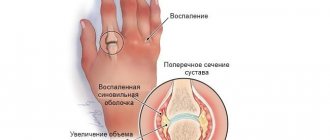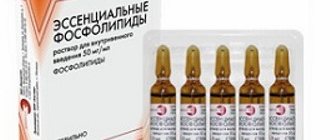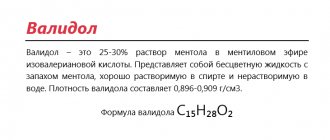The drug Vitrum Cardio Omega-3 is a source of essential polyunsaturated fatty acids of the Omega-3 group. This drug is recommended to be taken to reduce cholesterol levels in the blood, thus reducing the risk of acquiring atherosclerosis and other diseases of the heart and blood vessels.
Polyunsaturated acids in the composition of the drug play a huge role in the body, and since not everyone can provide them with natural food, taking this drug is the best way to ensure the intake of Omega-3 PUFAs.
In addition, thanks to regular use of this drug, the functioning of the cardiovascular system is improved and the risk of getting any diseases of this system is reduced.
Composition and appearance of the drug
Vitrum Cardio Omega-3 is produced in oblong capsules, ranging in color from light yellow to dark yellow. Shell material – gelatin. There is an oil solution inside. Available in polymer bottles or blisters. The quantity varies - from 30 to 120 pieces. The price depends on the size of the package. Below you can see the composition of one dose of Vitrum Cardio Omega-3.
| Components of the drug, caps. | Amount per 1 capsule, mg. |
| Omega three triglycerides, including: | 1000 |
| Eicosapentaenoic acid | 300 |
| Docosahexaenoic acid | 200 |
| Vitamin E | 2 |
| Gelatin shell | 261,7 |
| Glycerol | 117,8 |
| Water distillate | 235,5 |
The components in Vitrum Cardio are obtained from natural ingredients of animal origin, which gives the medicine a specific taste.
Vitrum Cardio Omega-3
Release form, composition and packaging
Soft gelatin capsules, transparent, light yellow to dark yellow, oval; the contents of the capsules are a transparent oily liquid from light yellow to dark yellow with a specific odor.
1 caps. ethyl esters of omega-3 acids, including: eicosapentaenoic acid 300 mg;
- docosahexaenoic acid 200 mg;
- D-α-tocopherol (Vit. E) 2 mg. Excipients: gelatin, glycerol, distilled water.
Clinical and pharmacological group: A drug that regulates lipid metabolism.
pharmachologic effect
A combined preparation containing polyunsaturated fatty acids of the omega-3-eicosapentaenoic acid family, docosahexenoic acid and vitamin E. It has a therapeutic effect for lipid metabolism disorders caused by severe hypertriglyceridemia, and has an anti-inflammatory effect.
Helps normalize the content of LDL and VLDL, change the fluid properties of cell membranes and increase the functional activity of membrane receptors, which improves the lipid-cellular interaction of lipoproteins with enzymes and the metabolism of lipoproteins.
The antiplatelet effect of the drug is associated with changes under its influence in the composition of lipids of cell membranes, incl. and membranes of erythrocytes, characterized by a decrease in the content of arachidonic acid and an increase in the level of eicosapentaenoic acid. As a result, there is a decrease in the synthesis of thromboxane A2 and other diunsaturated eicosanoids (derivatives of arachidonic acid), which enhance platelet aggregation, and an increase in the synthesis of thromboxane A3 and other triunsaturated eicosanoids from eicosapentaenoic acid, which do not have a proaggregant effect.
This complex of essential polyunsaturated fatty acids is used to normalize lipid metabolism and reduce the risk of developing atherosclerosis. Vitamin E has antioxidant activity, participates in tissue respiration and other important processes of tissue metabolism; protects cells and tissues from the damaging effects of excess free radicals and lipid peroxidation products.
Pharmacokinetics
The effect of the drug Vitrum Cardio Omega-3 is the combined effect of its components, so kinetic observations are not possible; Collectively, the components cannot be traced using markers or bioassays.
Indications
- prevention of conditions caused by dyslipidemia (lipid metabolism disorder);
- as part of complex therapy for lipid metabolism disorders, including diet, statins, antiplatelet agents;
- hypovitaminosis of vitamin E.
Dosage regimen
The drug is prescribed orally. It is recommended to take with water 30 minutes after meals. For preventive purposes, adults are prescribed 1 capsule/day; for therapeutic purposes - 2-3 caps./day. The course of treatment is at least 3 months. The doctor determines the need for repeated courses individually.
Side effect
From the digestive system: possible sensation of a fishy taste, belching with a fishy taste in the first days of use, a laxative effect.
Other: allergic reactions.
Contraindications
- exacerbation of chronic cholecystitis;
- exacerbation of chronic pancreatitis;
- exacerbation of diseases of the hepatobiliary system;
- cholelithiasis;
- pathological conditions including hemorrhagic syndrome;
- hypersensitivity to the components of the drug.
Pregnancy and lactation
During pregnancy and lactation, the use of the drug is possible only as prescribed by a doctor.
Use for liver dysfunction
Contraindicated in case of exacerbation of chronic cholecystitis; with exacerbation of chronic pancreatitis; during exacerbation of diseases of the hepatobiliary system; with cholelithiasis.
special instructions
While taking Vitrum Cardio Omega-3, it is not recommended to take other medications containing vitamin E.
Overdose
Symptoms: manifestations of hypervitaminosis - pain in the epigastric region, dyspeptic symptoms (nausea, vomiting, diarrhea); with long-term use in high doses, exacerbation of chronic pancreatitis is possible.
Treatment: discontinuation of the drug, symptomatic therapy.
Drug interactions
Data on drug interaction of the drug are not provided.
Storage conditions and periods
The drug should be stored in a dry place, out of reach of children, at a temperature of 10° to 30°C. Shelf life: 3 years.
The principle of action of the drug
Vitrum Cardio has several properties that allow it to be used in conjunction with statins. Statins are drugs that lower blood cholesterol levels. It is used in the treatment of atherosclerosis.
Changes in lipid metabolism
Lipids are substances that do not dissolve in water. Necessary for maintaining the body's energy. Lipid metabolism occurs in cells and includes the following processes:
- breakdown and absorption in the intestine;
- carrying fats;
- metabolism of lipoproteins - cholesterol, phospholipids, triacylglycerols;
- lipogenesis – the process of converting glucose and carbohydrate compounds into fatty acids;
- catabolism - transformation into compounds that are simpler in structure.
The Omega Three drug performs a controlling function in the following processes:
- stabilization of the level of low-density lipoproteins, which are transporters that ensure the delivery of lipids from the liver to the periphery and back;
- activation of receptors located on cell membranes;
- strengthening the connection of lipoproteins with lipase, an enzyme that ensures the dissolution of fats and their separation into fractions.
Antiplatelet effect
Antiplatelet activity is an obstacle to the formation of blood clots, blood clots in the lumen of blood vessels that impair blood circulation. An obstacle occurs at the level of platelet aggregation. In Omega Three, eicosapentaenoic acid has this property.
Antioxidant effect
Antioxidants are substances that have the ability to inhibit and neutralize oxidation processes that occur due to the effects of free radicals. Vitrum Cardio capsules with Omega-3 contain tocopherol, which has these properties.
Vitrum Cardio Omega-3: properties
The effect of the drug on the human body is determined by its active components. This drug helps to compensate for the deficiency of Omega-3 polyunsaturated fatty acid, which is responsible for the normal functioning of the heart and blood vessels, and also helps reduce the level of bad cholesterol, the presence of which can cause atherosclerosis.
In addition, this drug helps improve not only the functioning of the cardiovascular system, but also overall well-being. When taking it, there is an increase in performance, mood and vitality.
Thanks to the presence of vitamin E in the composition of the drug, cells are protected from the effects of free radicals, and also takes part in many cellular processes, improving cellular respiration and other metabolic processes. In addition, it has antioxidant effects.
Indications for use
The drug Vitrum is used as prescribed by cardiologists for the following purposes:
- prevention and treatment of atherosclerosis - a disease in which specific fatty and connective tissue plaques form on the walls of blood vessels, deforming the lumens, causing circulatory problems;
- complex therapy for high cholesterol levels, together with treatments, based on dietary measures;
- sclerotic changes in cerebral vessels;
- ischemia of the heart muscle, angina attacks;
- arterial hypertension;
- exceeding the standards for triglycerides in the blood - substances consisting of three fatty acids and glycerol.
Instructions for use of the drug Vitrum Cardio Omega-3 do not provide for use in children under 18 years of age. Pregnant women are prescribed only by the attending physician who monitors the condition of the fetus.
Omega-3: benefits of the supplement and in what cases it is used
This set of fatty acids is not synthesized in the human body, but its intake from the outside can have a positive effect on the course of a certain number of processes in the body and prevent the occurrence of various diseases.
Let's look at 15 cases in which you can take Omega-3 dietary supplements.
#1 If you are depressed
Many recent studies suggest that people who regularly take Omega-3 supplements are less likely to experience depression than others. In a scientific experiment conducted by Australian scientists, it was found that the combined use of EPA (eicosapentaenoic acid) and antidepressant drugs with the active ingredient fluoxetine (Fluxen, Fluoxetine) helps to cope with depression faster in 81% of cases. And the use of eicosapentaenoic acid alone helps 50% of patients with mental disorders.
#2 Omega-3 for vision
Docosahexaenoic acid is one of the constituent elements of the retina. If the body lacks it, vision problems arise. It can be noted that a sufficient amount of Omega-3 can reduce the risk of pinguecula (growth of the conjunctiva).
№3 Omega-3 for pregnant women
Consumption of fish oil or Omega-3 nutritional supplements in the last trimester of pregnancy can reduce the risk of developing various fetal pathologies. Taking this dietary supplement by pregnant women leads to the following beneficial results:
- reducing the risk of labor starting prematurely;
- preventing an increase in the child’s intrauterine age;
- reducing the likelihood of fetal development delay;
- minimizing the risk of cerebral palsy and autism in a child.
It is during the prenatal period that women experience a lack of Omega-3, but this can be replenished with the help of Omega-3 dietary supplements.
Note!
Before taking Omega-3 capsules, pregnant women should definitely consult their doctor. In each individual case, the doctor will decide whether it is advisable to take this dietary supplement or whether it is better to refuse it.
No. 4 Omega-3 for the heart and blood vessels
Regular use of Omega-3 capsules can reduce the risk of developing a number of abnormalities in the functioning of the cardiovascular system, namely:
- helps lower blood pressure in hypertensive patients;
- reduces the amount of triglycerides and cholesterol in the blood;
- prevents thrombosis (formation of blood clots);
- counteracts clogging of arteries and the occurrence of atherosclerosis.
No. 5 In the treatment of autoimmune diseases
Scientific facts confirm that taking Omega-3 during the first year of a child’s life reduces the likelihood of developing autoimmune diseases, namely autoimmune diabetes, multiple sclerosis and type 1 diabetes.
#6 Prevents ADHD and helps treat it
ADHD (attention deficit hyperactivity disorder in children) is a behavioral disorder, the main symptoms of which are increased inattention, impulsivity and hyperactivity.
Experimental data demonstrate that children with low levels of Omega-3 have ADHD more often than their healthy peers. Omega-3 supplements help reduce symptoms of ADHD.
#7 Helps in the treatment of certain mental illnesses
Patients with mental disorders tend to have low levels of Omega-3 in their blood. And taking this dietary supplement eliminates mood swings and the recurrence of attacks of bipolar disorder and schizophrenia after recovery. Aggressive behavior may also decrease.
#8 Relieves menstrual pain
An experiment conducted in 2010 by the Babol University of Medical Sciences showed that Omega-3 supplements were more effective in suppressing menstrual pain than medications whose main active ingredient is ibuprofen.
It has also been proven that women who regularly take Omega-3 supplements have less menstrual pain than those who do not take them.
No. 9 Strengthens bones and improves the health of cartilage and joints
Taking an Omega-3 supplement makes bones, joints and cartilage stronger and stronger. As a result, the risk of arthritis and osteoporosis is reduced.
The supplement in question increases the strength of bone tissue by increasing its calcium (Ca) content, which leads to a reduced risk of osteoporosis. People suffering from arthritis report that joint pain decreases after taking Omega-3.
#10 Makes you sleep longer and more soundly
A lack of Omega-3 fatty acids causes obstructive sleep apnea in adults and sleep problems in children. Moreover, a low level of docosahexaenoic acid entails a decrease in melatonin levels (a hormone that helps you sleep). By consuming Omega-3 nutritional supplements, you will get longer and better quality sleep.
#11 Helps overcome skin problems
Docosahexaenoic acid is a structural component of the skin. It is responsible for the health of cell membranes, which make up most of the skin. Thanks to a healthy cell membrane, the skin becomes soft, hydrated and elastic.
Additionally, eicosapentaenoic acid (EPA) also provides skin benefits such as:
- reduces premature skin aging;
- prevents hyperkeratinization of hair follicles (formation of a large amount of stratum corneum);
- reduces the risk of acne.
Omega-3 can also protect your skin from sun damage. EPA helps block the release of substances that eat away collagen in the skin after sun exposure.
No. 12 Reduces the likelihood of fatty liver degeneration
Non-alcoholic fatty liver disease (NAFLD, steatosis, fatty liver disease) is a change in liver cells due to excess fat deposition. It is very common in overweight people. However, taking omega-3 fatty acid supplements is effective in reducing liver fat and inflammation in people with NAFLD.
#13 Omega-3 for the brain
Docosahexaenoic acid makes up 40% of the polyunsaturated fatty acids that are part of the nuclear structures of the brain. Use of Omega-3 dietary supplement:
- improves blood supply and, as a result, activates brain activity;
- supports rapid transmission of nerve impulses;
- speeds up the process of memorizing information;
- increases the speed of performing various tasks, including logical ones.
No. 14 Helps in the fight against inflammation
Omega-3 fatty acids can reduce the production of molecules and substances associated with inflammation, such as inflammatory eicosanoids and cytokines, causing the body to experience inflammation much faster.
#15 Omega-3 for immunity
The dietary supplement in question supports the activity of special cells of the immune system (T-leukocytes and B-leukocytes), thus strengthening the protective barrier against viruses and bacteria. Omega-3 also increases the speed of interaction between immune cells and the transfer of information between them.
It is important to note that Omega-3 is beneficial for children in the same way as for adults. Read on for more details on how to properly take this combination of polyunsaturated fatty acids.
Contraindications
The drug Vitrum is not used for patients who have the following pathological conditions:
- cholecystitis - inflammation and blockage of the bile ducts, interfering with the free flow of bile;
- pancreatitis is an inflammatory disease in which pancreatic enzymes do not enter the duodenum, but remain in the organ itself, leading to its destruction;
- obstruction of the gallbladder and excretory ducts by stones;
- hemorrhagic disorders of blood coagulation due to genetic pathologies such as hemophilia or a decrease in the number of platelets;
- hypervitaminosis E.
Do not use Vitrum in cases where the patient has hypersensitivity to any component of the drug.
Admission rules
The dosage of Vitrum is calculated by the attending physician. The dose varies depending on the patient’s condition and purposes of use:
- prevention – one piece per day;
- therapy – one capsule up to three times a day.
Rules for taking medication:
- drink half an hour after eating;
- swallow whole without violating the integrity of the shell;
- drink plenty of water, at least half a glass, for safe passage through the esophagus.
The minimum course of treatment is three months, which can be extended if necessary.
special instructions
The annotation for the drug contains special instructions:
- do not use simultaneously with supplements containing tocopherol to avoid overdose;
- Pregnant women and nursing mothers should use it in consultation with a gynecologist;
- do not use during exacerbation of pathological conditions of the liver;
- individual course for high triglyceride levels - up to four capsules per day, divided into two doses;
- do not exceed the dosage prescribed by your doctor.
Side effects
Like any drug, Vitrum can cause unpleasant effects that disappear after discontinuation:
- belching with a fishy taste and smell;
- dyspepsia – nausea, vomiting, diarrhea, impaired taste;
- reflux of gastric contents into the esophagus;
- migraines, dizziness;
- pressure drop;
- decreased blood clotting function.
In case of individual intolerance to the components, an allergy may develop, manifested by:
- urticaria - the appearance of a rash in the area of the inner thighs, on the stomach, face, arms;
- Quincke's edema - swelling of the mucous membranes of the upper respiratory tract;
- anaphylactic shock is a severe allergic reaction with a sharp drop in blood pressure and loss of consciousness.
Patient reviews about the advantages and disadvantages
| Leave feedback | |
| 1 2 3 4 5 | |
| Send Cancel | |
Send your review
Vitrum Cardio Omega-3
Average rating: Number of reviews: 0
Reviews of those taking Vitrum Cardio Omega-3 according to the instructions are positive. Indicate improvement in the condition of hair and nails. Positive effects on hypertension and improved performance are noted. Negative reviews concern side effects - belching with a fishy aftertaste, and there are complaints about the high price.
If you have ever taken the drug, please share your opinion.
Cost, possibility of purchase
Vitrum cardio omega-3 caps. n60
from 1560 ₽
Buy
You can purchase Vitrum in pharmacy chains or online stores. The pricing policy of pharmacies is less favorable for the consumer - the cost of goods includes the costs of renting premises for trade, transportation costs, and wages for pharmacists. Prices are lower in online stores . But you need to purchase from reliable stores with a proven history to avoid fraud. Some pharmacy chains offer pre-booking services, in which case a discount of 10 to 20 percent is provided. Online stores such as iHerb also provide discounts to new customers.
The cost varies depending on the place of purchase and region of residence. You can find the drug in the price range from 1377 to 2156 rubles.
Vitrum Omega-3
Active substance:
Pharmgroup:
Other lipid-lowering drugs
Average price in pharmacies
| Name | Manufacturer | average price |
| Vitrum beauty plus n60 tablet p/film/shell 1580 mg | Eagle Nutritionals, Inc./ Unipharm, Inc. | 1831.00 |
| Vitrum vision plus n60 tablet p/capt/sheath 854 mg | Eagle Nutritionals, Inc./ Unipharm, Inc. | 1337.00 |
| Vitrum kids plus n30 tablet chewed | Eagle Nutritionals, Inc./ Unipharm, Inc. | 441.00 |
| Vitrum memory plus n60 tablet 462.5 mg | Eagle Nutritionals, Inc./ Unipharm, Inc. | 759.00 |
| Vitrum omega-3 plus n60 caps 1382 mg | Brunel Healthcare Manufacturing Limited for Takeda Pharmaceuticals International AG | 1446.00 |
Application area:Vasorenal hypertension Venous embolism Venous thrombosis Ventricular arrhythmia Ventricular tachyarrhythmia Sudden increase in blood pressure Sudden increase in blood pressure Secondary hyperlipoproteinemia High frequency of ventricular contraction Hyperlipidemia Hyperlipidemia type II Hyperlipidemia IIa Hyperlipidemia type IIa Hyperlipoproteinemia Hyperlipoproteinemia type IIa Hyperlipoproteinemia type IIb Hypertensive circulatory disorder Hypertensive circulatory disorder Hypertensive state Hypertensive state Hypertensive crises Hypertensive crises Hypertension Hypertension Arterial hypertension Arterial hypertension Hypertension is malignant Hypertension is malignant Hypertension, symptomatic Essential hypertension Hypertonic disease Hypertensive crises Hypertensive crises Hypertensive crisis Hypertensive crisis Hypertension Diseases caused by the formation of blood clots in blood vessels Malignant hypertension Malignant hypertension Malignant hypertension Malignant hypertension Isolated systolic hypertension Combined hypercholesterolemia and hypertriglyceridemia Correction of lipid metabolism disorders Hypertensive crisis Hypertensive crisis Atrial fibrillation tachysystolic arrhythmia Heart rhythm disturbance Heart rhythm disturbances Heart rhythm disturbances Exacerbation of hypertension Exacerbation of hypertension Occlusive lesions of arteries Acute arterial thromboembolism Acute vascular occlusion Acute vascular occlusion Acute arterial occlusion Acute arterial thrombosis Acute venous thrombosis Acute thrombosis Acute venous thrombosis Acute thrombosis of peripheral arteries Paroxysmal supraventricular arrhythmia Paroxysmal supraventricular arrhythmia Paroxysmal supraventricular tachycardia Paroxysmal rhythm disorder Paroxysmal atrioventricular rhythm Primary arterial hypertension Elevated LDL level Renal hypertension Precordial pathological pulsation Renovascular arterial hypertension Renovascular hypertension Cardiac arrhythmias Symptomatic arterial hypertension Supraventricular tachyarrhythmia Supraventricular tachycardia Supraventricular arrhythmias Tachyarrhythmia Transient arterial hypertension Transient arterial hypertension Thrombosis Thrombosis Thrombosis in the extracorporeal bloodstream Peripheral artery thrombosis Peripheral vascular thrombosis Thromboembolism Phlebothrombosis Shunt thrombosis Extrasystolic arrhythmia Embolism Emboli Peripheral artery embolism Essential arterial hypertension Essential arterial hypertension Essential hypertension Essential hypertension AV reentrant tachycardia AV nodal reentrant tachycardia |
Analogs
There are analogues of the drug Vitrum Cardio Omega-3 on sale, including domestic ones, similar in their mechanism of action. List of analogues:
- Minami Nutrition Cardio Omega-3;
- Omacor;
- Doppelhertz Active Omega-3;
- Omeganol.
Minami Nutrition Cardio Omega-3
Minami Nutrition, Cardio Omega-3 Fish Oil, Orange Flavor, 60 Softgels
2 910 ₽
Buy at a discount
Product of the American company Minami Nutrition. Made from natural raw materials. Contains 915 mg Ω-3. Designed to take one capsule per day for two months. Reviews note a pleasant orange taste and no fishy aftertaste. It has a high degree of purification.
Omacor
Manufactured by Abbott Laboratories, USA. The content of acids and tocopherol is two times higher than that of Vitrum. The cost differs. Omacor is a more expensive drug. The disadvantage is that you can only buy it with a prescription.
Doppelhertz Active
Doppelhertz Active Omega-3 caps. 1.366g n30
from 338 ₽
Buy
Produced by the German pharmaceutical company Queisser Pharma. Made from salmon fat, it has a high tocopherol content - 16.22 mg. Cost from 630 rubles.
What is Omega-3?
Omega-3 is a set of polyunsaturated healthy fatty acids that are necessary for humans. They are not produced by the body itself, and, therefore, Omega-3 can be obtained from food or taken in the form of dietary supplements.
Omega-3 contains three main acids:
- EPA—eicosapentaenoic acid;
- ALA - alpha-linoleic;
- DHA - docosahexaenoic acid.
Docosahexaenoic acid and eicosapentaenoic acid are most often found in animal products, while alpha-linoleic acid is found in plants.
Omega-3 in food
Natural sources of this combination of polyunsaturated acids are the following products:
- fatty fish (salmon, mackerel, herring);
- flax seeds;
- fish fat;
- linseed oil;
- chia seeds;
- walnuts.
People who do not eat the above foods several times a week in the required quantities are recommended to take Omega-3 supplements or drink liquid or capsules of Fish oil.
In order to saturate the body with a sufficient amount of fatty acids, you need to eat fish, for example, sardines, mackerel, salmon, at least 2 times a week. However, not every person's diet includes foods containing Omega-3. Therefore, dietary supplements are an excellent alternative for replenishing Omega-3 reserves.
But what are the benefits of the dietary supplement in question?











